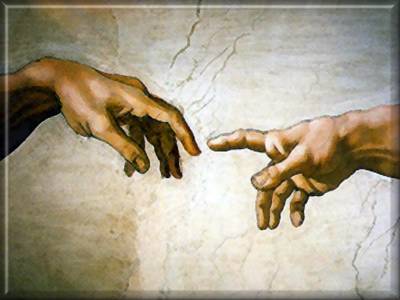
Okay, I'm not going to try to answer "Who am I?" because frankly, I don't know (Quick: say who you are without referring to any other persons). I am certainly no more, but at the same time much more, than the collection of aggregates I face in the mirror every day.
So, I don't know how to introduce my absolute self to you. But in this relative world, I can go on and on about what I like, what I do, where I've been, etc. If you really care about that sort of thing, here's the result of one of those personality profiles I completed for an on-line dating service . . .
_____________________________
I am a: 49 yr old man
Located in: Atlanta, Georgia, United States
Height: 5’ 11” (180.3 cms)
Eyes: Hazel
Hair: Bald
Hairstyle: Shaved
Body type: About average
Body art: Wouldn’t even think about it
Best feature: Eyes
Relationships: Several committed relationships — but now single
Sign: Leo
About me and who I'd like to date: As much as my humility would like to prevent me from talking about myself, here I go: I am a compassionate, romantic, wear-my-heart-on-my-sleeve, single, white male. I appreciate the many aspects of nature, and I enjoy travelling on both a local and global scale. I express my creative side through travel and nature photography, and wish that I had the discipline to apply myself more to writing. As an environmental consultant, I can express my spiritual and aesthetic appreciation for the natural world in my work. Although my work is important to me, and I do spend considerable time pursuing my profession, I take time to take care of myself through working out and balancing mind and body (meditation). I am an active Zen Buddhist, shaved head and all, but do not let that deter you: pursuit of a spiritual life does not shut me out of experiencing the many other pleasures of this mortal world. In fact, quite the opposite - awareness of the here and now actually enhances and heightens my enjoyment of the many wonders around us all the time, even in the so-called "ordinary" moments. Although I have been in committed relationships, I have never been married and have no children.
If you've read this far, I hope that you are a woman with a healthy sense of humor, an appreciation of life and the self-respect to take care of your mind and body. Although Zen practice is not a requirement, tolerance of my practice certainly is, and a successful long-term relationship will most likely be with someone at least partially interested in meditation, compassion and wisdom. And walks in the woods, faraway beaches, good books and good conversation, and long, lingering kisses.
For fun: I enjoy travel, photography, art, scuba diving, indie movies, eating in, dining out, hiking North Georgia and western North Carolina, reading, and listening to all kinds of music.
Favorite hot spots: To give you an idea of my preferences, I took a two-week trip to Corsica and Florence last summer. I also have a timeshare in Freeport, Bahamas. I would like to visit Iceland, the Greek islands, Budapest and the Far East.
Favorite things: I like the trails along the Chattahoochee, browsing used book stores, Nuevo Laredo Cantina, Fat Matt's Rib Shack, Sotto Sotto, Blackstone's and almost any coffeehouse. I like wearing blue jeans with grey t's, jazz, and sitting on a rainy day.
Last read: "The Emergence of Animals" by McMenamin and McMenamin, "Roscoe" by William Kennedy, and "Coming Soon" by John Barth. I prefer the NY Times to the AJC. My favorite magazine is Outside, but I subscribe to The Economist, ArtNews and The New Yorker.
Sense of humor: Clever: Nothing’s better than a quick-witted comeback
Sports and exercise: Exercise occasionally: Running, Walking/Hiking, Weights/Machines
Common interests: Camping, Coffee and conversation, Cooking, Dining out, Movies/Videos, Museums and art, Music and concerts, Performing arts, Religion/Spiritual, Travel/Sightseeing
Daily diet: Keep it healthy
Smoke: No Way
Drink: Gave it up
Job: I've been an environmental consultant for over 20 years. I enjoy my work and integrate my work hours with my personal time. In other words, I'm free for a nice long lunch or a matinee whenever I want, but will also work on a report at night.
My place: Live alone
Have kids: None
Want kids: Not sure
Pets: I don't have, but like Cats, Dogs, Fish, Reptiles, Exotic pets, Horses. I don't like Fleas.
Ethnicity: White / Caucasian. From what I've learned, my great-grandmother was from Liverpool and gave birth to my grandmother in Brooklyn or N.J. Grandmother married a Jacksonville, FL attorney and gave birth to my father in NYC, who married a descendent of the poet Robert Burns.
Faith: Zen Buddhist. The spiritual path is an important part of my life, as is tolerance, compassion and wisdom. For the last three years, I have actively been involved in Zen; however, I also recognize the virtue of other spiritual paths.
Education: I graduated from Boston University with a B.A. in Geology. I stayed on and got my Masters in Geology there, too, but my real education began after I graduated and got out into the so-called real world.
Languages: English
Politics: Non-conformist
Turn-ons: Long hair, Skinny dipping, Flirting, Public displays of affection, Dancing, Brainiacs, Boldness/Assertiveness, Erotica, Candlelight, Thunderstorms
Turn-offs: Tattoos, Body piercings, Sarcasm
___________________________
So there you have it - me, as best as a dating service can describe it. Full disclosure. Now I can go back to contemplating the absolute self . . .











